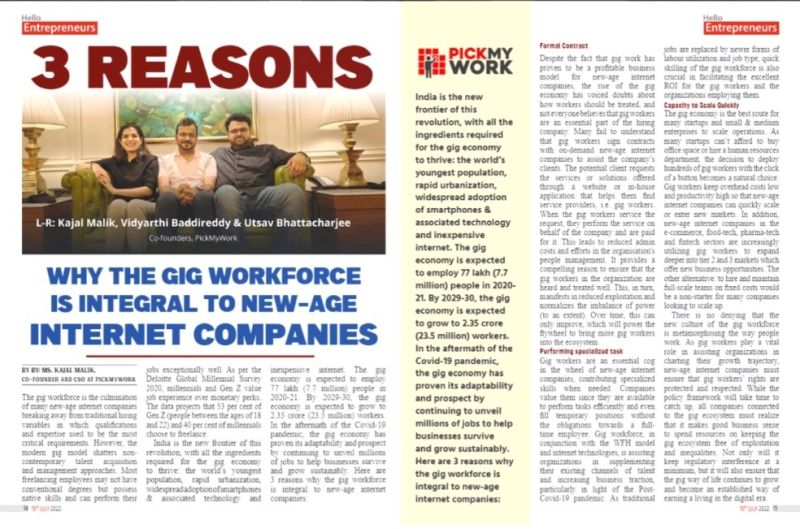The gig workforce is the culmination of many new-age internet companies breaking away from traditional hiring variables in which qualifications and expertise used to be the most critical requirements. However, the modern gig model shatters non-contemporary talent acquisition and management approaches. Most freelancing employees may not have conventional degrees but possess native skills and can perform their jobs exceptionally well. As per the Deloitte Global Millennial Survey 2020, millennials and Gen Z value job experience over monetary perks. The data projects that 53 per cent of Gen Z (people between the ages of 18 and 22) and 40 per cent of millennials choose to freelance.
India is the new frontier of this revolution, with all the ingredients required for the gig economy to thrive: the world’s youngest population, rapid urbanization, widespread adoption of smartphones & associated technology and inexpensive internet. The gig economy is expected to employ 77 lakh (7.7 million) people in 2020-21. By 2029-30, the gig economy is expected to grow to 2.35 crore (23.5 million) workers. In the aftermath of the Covid-19 pandemic, the gig economy has proven its adaptability and prospect by continuing to unveil millions of jobs to help businesses survive and grow sustainably. Here are 3 reasons why the gig workforce is integral to new-age internet companies:
Formal Contract
Despite the fact that gig work has proven to be a profitable business model for new-age internet companies, the rise of the gig economy has voiced doubts about how workers should be treated, and not everyone believes that gig workers are an essential part of the hiring company. Many fail to understand that gig workers sign contracts with on-demand new-age internet companies to assist the company’s clients. The potential client requests the services or solutions offered through a website or in-house application that helps them find service providers, i.e. gig workers. When the gig workers service the request, they perform the service on behalf of the company and are paid for it. This leads to reduced admin costs and efforts in the organisation’s people management. It provides a compelling reason to ensure that the gig workers in the organization are heard and treated well. This, in turn, manifests in reduced exploitation and normalizes the imbalance of power (to an extent). Over time, this can only improve, which will power the flywheel to bring more gig workers into the ecosystem.
Read more about post:

